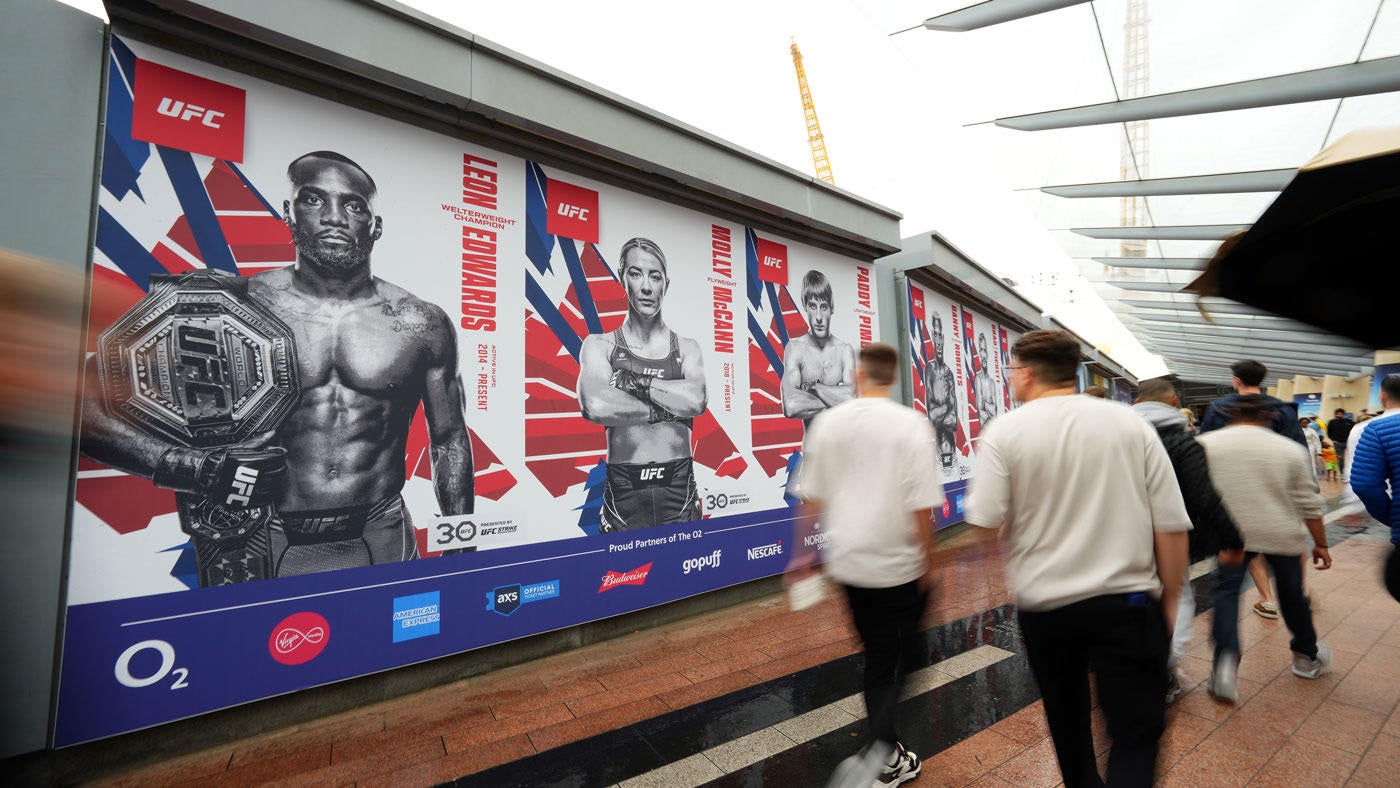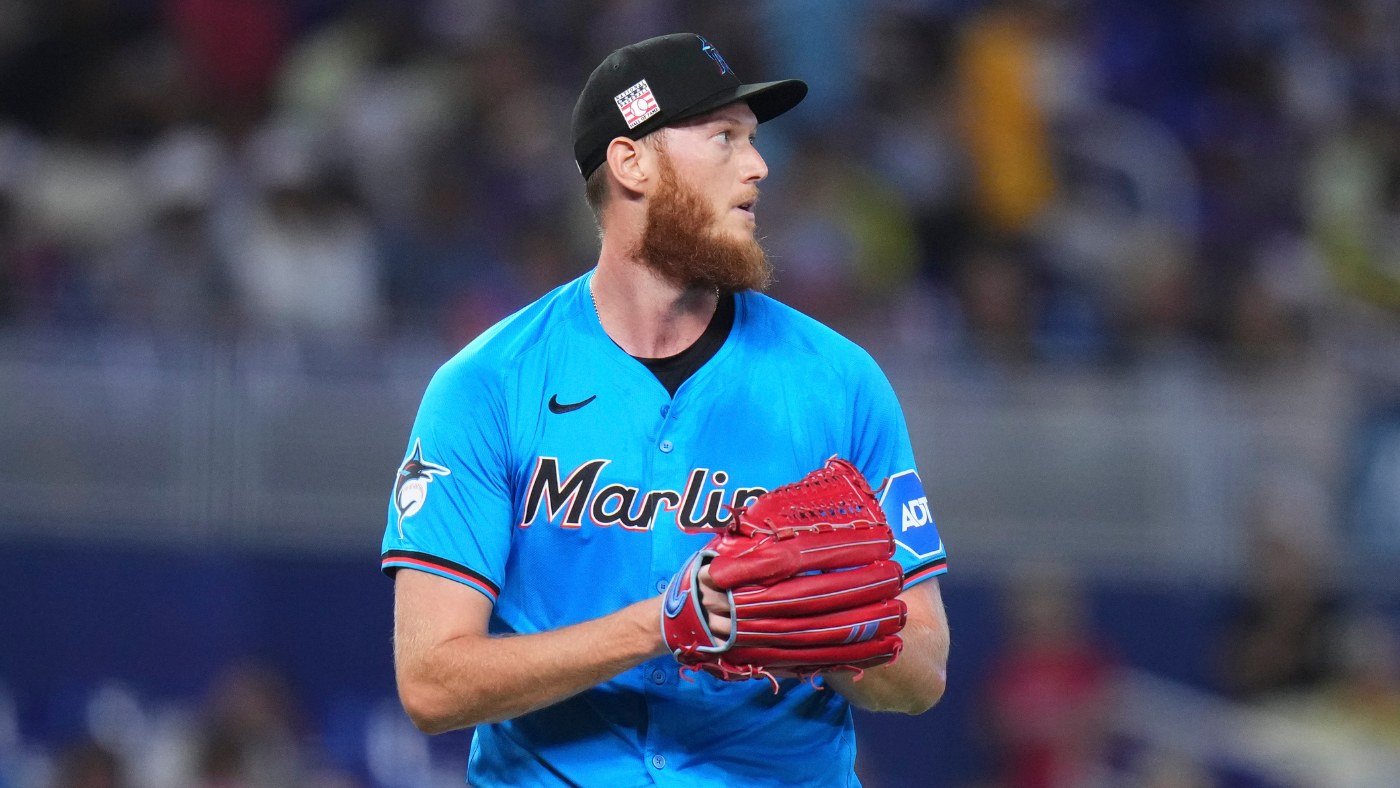UFC 304: Why Michael Bisping, Michael Page believe British MMA has a long way to go despite recent success
Written by CBS SPORTS ALL RIGHTS RESERVED on July 26, 2024


England has become a regular destination for the UFC thanks to the country’s feverish fanbase and the success of multiple British champions and personalities. MMA’s rise in the United Kingdom is substantial but even its fighters will admit there are hurdles to overtaking boxing as the nation’s top combat sport.
“In the U.K., my manager was a convicted heroin dealer. He went to prison,” Bisping said. “He was a murderous scumbag that ripped me off many, many times. That’s how it was in the early days.
“I remember routinely driving down to Birmingham, a two-and-a-half-hour drive from me to train in high-level jiu-jitsu. Then I’d go to Wales to do something else and go somewhere else for kickboxing. Wrestling was hard to find as well. Now it’s up and down the country. There are so many great training facilities and gyms specializing in MMA training and cross-training. You can find everything in-house.”
Manchester hosts UFC 304 on Saturday. The card features two UFC champions — undisputed welterweight champ Leon Edwards and interim heavyweight titleholder Tom Aspinall. Paddy Pimblett, one of the company’s more popular personalities, looks to break into the UFC’s official lightweight Top 15. The pay-per-view card also features several legitimate title challengers from the U.K.
It’s great progress considering it took 14 years after the UFC’s debut in the U.K. in 2002 for the nation to crown a UFC champion. However, MMA’s popularity is still trumped by a sibling sport that’s centuries older and lingering concerns about violence.
“Many people still feel that it’s too much, that it’s too raw, that it’s too dangerous,” Bisping said. “Whereas on paper it is far, far safer. Of course, people like Leon, Michael [Page], and the fighters competing at UFC 304 have a massive opportunity and platform. There are tons of great U.K. fighters, but regarding acceptance and acknowledgment from the U.K. public en masse, there is sadly still a long way to go.”
Michael “Venom” Page, currently ranked No. 14 in the UFC’s welterweight division, has had more welcoming conversations with MMA outsiders but agrees with Bisping’s assessment that their sport is not easily accepted. Page points to past conversations with sponsors who watch MMA but would rather attach their brand to boxing. Page thinks the U.K. needs three to five years and a culturally significant MMA event to take the next step forward.
“This is one of the reasons why I’m so eager to get a fight with Leon Edwards,” Page told CBS Sports. “I think it does so much for the U.K. because we haven’t had a Chris Eubanks vs. Nigel Benn type of fight. Bisping kicked down the door, but we haven’t had somebody that could match Bisping to have that kind of epic U.K. MMA clash. That’s the kind of thing that people talk about in history.
“We still have a long way to go, but again, people like Bisping and everyone who’s come after him waving the flag right at the front and shining the torch has helped to build it to where it’s now.”
UFC champions are emerging from all corners of the globe. Current titleholders represent Brazil, China, England, Mexico, Russia, Spain, South Africa and the United States. Historically, the lion’s share of champions have been from the U.S. UFC’s roots are in America, often giving the country an edge in exposure, quality of training, and quantity of athletes. It remains a hurdle for the growth of U.K. MMA.
“Part of the problem is the time difference,” Bisping said. “It’s primarily an American-based organization. It’s a worldwide phenomenon… but the majority of pay-per-views and big fights are on U.S. soil. That’s traditionally in the middle of the night in the U.K.
“That is a big part of why the growth hasn’t been quite as accelerated as it should be.”
Even UFC 304 caters to a North American consumer despite taking place in Manchester. The PPV main card begins at 10 p.m. ET, which is 3 a.m. in Manchester. The main event and co-main event walks are expected around 5:00 a.m. and 4:30 a.m. respectively. The fighters competing in England must factor alternate sleep cycles into their training to accommodate a product that’s still primarily oriented toward an American audience.
Like any innovation, U.K. MMA simply trails behind the product’s point of origin. Bisping took his first professional fight in 2004. The scene has transformed in the two decades since the days when “cage fighter” was more synonymous with his profession than “mixed martial artist.” Bisping’s early forays into MMA included training with pioneer Ian Freeman — who knocked out future heavyweight champ Frank Mir at UFC 38.
Bisping was 16 fights deep into the UFC when Page first laced up his MMA gloves. Training in the U.S. was still perceived as a prerequisite to high-level achievement in MMA after the eight-year gap between their respective professional debuts.
“I had it in my head that I had to move to America when I first joined MMA,” Page said. “The first gym I planned to join was American Top Team because my family lived in Miami. I wanted to stay by them and train at American Top Team in Coconut Creek. That goes to show the mentality I had. I was looking around and it felt like everything was stateside.
“Now there are gyms everywhere. Even as I’m driving down the road, I’ll see MMA or jiu-jitsu. They are popping up absolutely everywhere which shows the dramatic increase of MMA in the U.K.”
The three kings of U.K. MMA are Bisping, Edwards and Aspinall. Bisping has the most storied career, Edwards has the best title run and Aspinall is the most dominant. After exploring the past and present of U.K. MMA, Bisping and Page were asked to predict which champion would be the nation’s brightest. At the moment, it’s neck-and-neck.
“I think legendary status, you have to give it to Bisping,” Page said. “I know he is here, but you’ve got to say Bisping because that moment meant a lot for the U.K.
“Everything felt very far. I was eager to achieve that, but it reaffirmed what I felt could be done. I saw people get close and drop short. Jimi Manuwa crossing into the UFC was exciting for everybody but nobody did anything outside of getting to the UFC. It felt like that was about all the U.K. guys could do. I believed, ‘No, I can get all the way. I believe I can do that.’ Then Bisping did it and we know now it’s 100% possible.”
Bisping has confidence in spades but conceded his case in favor of interim heavyweight champ Aspinall.
“I think he smokes Jon Jones. I think he smokes Stipe Miocic. And I think he probably smokes the heavyweight division until he decides to call it a day,” Bisping said. “Now, I might be wrong. I often am. But there’s a good potential that he might go on and defend the belt 10 times or something crazy. That’s the kind of ability I think he has.”
Page wouldn’t end the debate without giving Edwards proper credit. Edwards’ 13-fight undefeated streak has lasted eight years and he’s the only U.K. champion to make consecutive successful title defenses.
“But also I think you have to give it to Leon Edwards based on where he’s gotten to his career thus far, the route he’s taken, and how much time he has left in the sport,” Page said. “He’s been given the hard route every single step of the way. No complaints. He just kept doing it until he finally got to the place where everyone doubted him. He won it twice back-to-back.”
The post UFC 304: Why Michael Bisping, Michael Page believe British MMA has a long way to go despite recent success first appeared on OKC Sports Radio.







